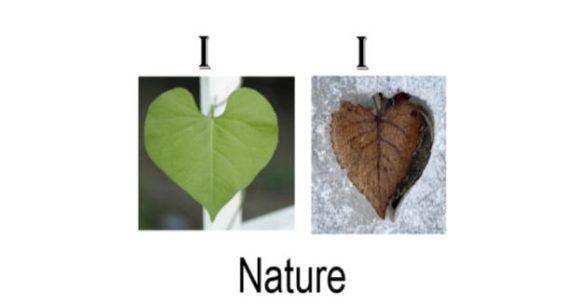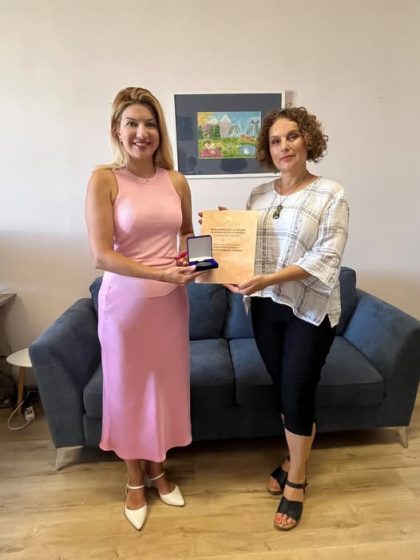
Dr. Georgi Chaldakov
On behalf of the Bulgarian Society for Cell Biology, and
the International Society of Brain-and-Heart Friends,
George N. Chaldakov*, BHF, MD, PhD, DHC, FIACS
Founding Chairman, BGSCB and ISBHF
.
To be a student (and teacher) is profound responsibility.
1. He who learns, he will succeed. – an Bulgarian proverb.
2. March Ahead, O Revived People… Science is a sun,/ which in our souls shines!* – not only on May 24, the feast day of Bulgarian Cyrillic alphabet and culture, but continuously throughout life (LLP – Lifelong Learning Program; also, Laboratory, Library, Pub; CME – Continuing Medical Education). You know, love-of-knowledge (in Bulgarian, Lyuboznanie) and the empathy make the power.
3. Follow didactic cascade: from information to knowledge to way of thinking. Feel the knowledge like you feel your Mother tongue. The latter, in the biomedical education, means: translate the information of cellular Molecules, Structures and Functions (MSF) into the knowledge of Diseases, Prevention and Therapy (DPT). Briefly: the journey from MSF to DPT is exciting indeed.**
4. Be inspired by love-of-knowledge (LoK, a lock-and-key for all doors of knowledge). Learning without thinking is useless. Thinking without learning is dangerous (Confucius).
5. Imagination is more important than knowledge because knowledge is limited (Albert Einstein).
6. Remember, “we are feeling creatures that think, not thinking creatures that feel”. *** – a triarchy (three fundamental ways of getting things done) of IQ (Intelligence Quotient), EQ (Emotional Quotient) и FQ (Friendship Quotient). The more fruit you eat from the Tree of Lyuboznanie, the better for your future job and life:
.

7. Follow your parents’ advice: WHAT DID I ARRIVE HERE FOR? – to study first, then rejoice. The reverse chronology is meaningless. As well as to study without having fun. Carpe diem („Seize the day, enjoy the moment“ – a lesson from the ancient Roman poet Horace).****
8. Healthy lifestyle, good education and hard work can ensure your excellent quality of life (QoL).
9. Develop your moral reflexes – mutual respect and love each other, create and enjoy brain-and-heart friend/ship (BHF).
10. Sapere aude (dare to know, to use your own brain-and-heart) and our version of it: Have the courage to cross at least once at a red light on the road of science to make your own green path on it. To achieve your Eureka effect. Then you can say: Vox Studentium vox Dei!
* Departments of Anatomy and Cell Biology and Translational Stem Cell Biology,
Research Institute, Medical University, Varna, Bulgaria
E-mail: chaldakov@yahoo.com
–––––––––––––––––––––––––––––––––––––––––––
* From Stoyan Mihaylovski’s poem (1882), a traditional song of all Bulgarian schools and universities.
** Principles of Cell Biology e-book was published in 2022 by BioMedES Ltd., Aberdeen, United Kingdom. www.BioMedEs.biz. To read its full text, please use the link: https://www.amazon.de/-/en/George-Chaldakov-ebook/dp/B0BKWHKVWP
Thus, you can enjoy your Lyuboznanie with a state-of-the-science (SоS) level of current biomedical knowledge.
*** From Prof. Antonio Damasio’s books “Descartes’ Error: Emotion, Reason, and the Human Brain” and “Looking for Spinoza: Joy, Sorrow, and the Feeling Brain”.
**** Since then (1960, first year medical student) now, my parents message WHAT DID I ARRIVE HERE FOR? has been playing a role model for my behavior. In the early 1990’s, when my son Nikolai studied art photography in London, UK, I gave the message to him. Further, he gave it to his son, my grandson Nikifor. I call that “the flow of genes, epigenes, and memes” – perpetuum mobile de vita.
––––––––––––––––––––––––––––
HOMO LIBER
To all students
Sapere aude – dare to know,
have the courage to use your own reason,
as had written by the ancient Roman poet Horace.
The individual Freedom,
you can achieve it,
if guided by your own mind-and-moral compass,
understanding that “not in the squares –
but in our souls She –
the Freedom – is built and destroyed”. 1
Then, you can stand face-to-face with Hic sunt leones2
and enter terra incognita.
Like “two million roosters breaking the sky to pieces”, 3
to shift the paradigm4, questioning the status quo –
the state in which things are,
to pass at least once on a red light on the street of science –
to find your green path for it –
to reach your Eureka moment, and
say “why not!” 5 , “I am free”. 6
“I think globally, act locally”, 7
“Live and let live” –
to appreciate the reciprocal empathy, 8
to apply the Nash equilibrium 9,
to say Óχι! (Greek, “No”) to “the great warlike powers”,
to their maxim Might is right 10,
hearing the “Vox sanguinis” of dignity:
.

.
To “keep six honest serving-men –
What and Why, When and How, Where and Who”. 11
To love and protect Mother Nature:

To ask: Why?, Perché?, ¿Por qué?, Pourquoi? Zashto? Warum? Pochemu?….. there are too many wars on our Earth.
To appeal:
.

.
And in the End, the love you take
is the equal to the love you make. 12
Individual Freedom –
you can – after all – achieve it,
see a butterfly is flying towards
the top of Mount Fuji. 13
Then, Primavera (Springtime) is coming
As the bears feel warm and
awake from their winter sleep,
the almond branches are covered with buds –
such as those on the dendrites of nerve cells.14
Almonds dream of bees –
to kiss the buds and make them bloom.
––––––––––––––––––––––––––––––––––––––––––––-
1. From the poem “Book of Freedom” by the great Bulgarian poet Hristo Fotev (1934–2002).
2. The ancient Romans wrote on geographical maps hic sunt leones (here are the lions) on the territory that is dangerous to enter. On the map of our capital city Sofia, we may write “here are the politicians”, “here is the vice president”.
3. From the poem “New York: Office and Denunciation” by the great Spanish poet and playwright Federico Garcia Lorca (1898–1936; arrested and killed on 19 August in Granada, Spain on the orders of Franco’s military authorities).
4. „New paradigm should not only be different, but better one” (like your new girlfriends) – wrote the USA philosopher Thomas Kuhn in his book (1962) The Structure of Scientific Revolutions.
5. “Some men see things as they are, and say why. I dream of things that never were, and say why not” – Robert F. Kennedy (1925– 6 June 1968; political assassination on 5 June in Los Angeles, California).
6. „I hope for nothing. I fear nothing. I am free.“ – Nikos Kazantzakis’ epitaph on his grave in Heraklion, his native city in Crete, Greece.
7. “Think globally, act locally” is a radiant thought of the great French-American scientist Prof. Rene Dubois (1901–1982), spoken before the UN Assembly in 1972. From global and local, it becomes glocal – think glocally.
8. Every morning the leader of the Bolivian Incas said to his people:
„Do not steal and do not lie!“,
and they answered him: „You too!“.
9. A new paradigm in game theory, which in 1994 was awarded the Nobel Prize in Economics. Until then, game theory had studied the relations of rivalry, in which in order for one to win, the other must necessarily lose. John Nash’s „Beautiful Mind“ mathematically proved that there is a set of decisions for each individual player, in which no one has to lose and both sides end up winning (win-win strategy).
10. On the morning of October 28, 1940 the Greeks took to the streets crying Óχι! (“No!”) – an excellent lesson of national dignity. Since 1942, this day has been celebrated as “Óχι Day” and is a national holiday of Greece. It commemorates the negative response to the ultimatum presented by Mussolini to Greece on October 28, 1940. The ultimatum demanded that Greece allow the troops of Italy and Germany to enter the territory of Greece.
11. “They taught me all I knew” – from the English poet Rudyard Kipling’s verse.
12. From Beatles’ studio album “Abbey Road”, 1969.
13. Butterfly,/ fly toward the top of Mount Fuji/ rapidly, elegantly. – modified from the Kobayashi Issa’s haiku: Snail,/ clamp Mount Fuji,/ but slowly, slowly.
14. As you know, the neurons possess two types of projections: an axon and many dendrites (Greek, dendron – “tree”). The surface of dendrites are covered with „buds“ named dendritic spines (illustrated in the micrographs shown below) – they are bona fide very dynamic (“dancing”) structures of brain synapses pivotally involved in the process of cognition:
.

.
From: Tolias KF, Duman JG, Um K. Control of synapse development and plasticity by Rho GTPase regulatory proteins. Prog Neurobiol 2011; 94:133-148. DOI:10.1016/j.pneurobio. 2011.04.011
.



